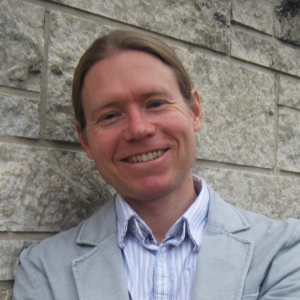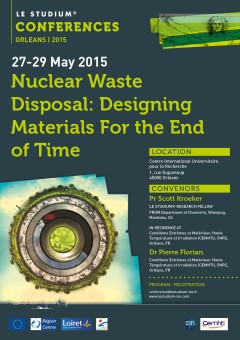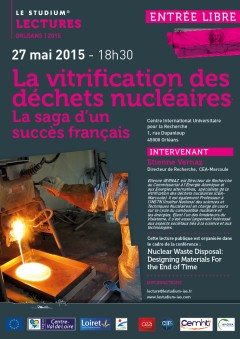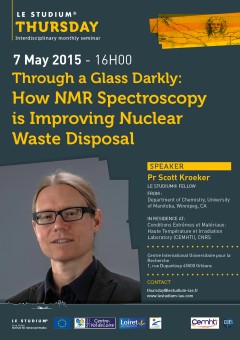Prof. Scott Kroeker

From
In residence at
Extreme Conditions and Materials: High Temperature and Irradiation (CEMHTI) / CNRS - FR
Host scientist
Dr Pierre FLORIAN
PROJECT
High-temperature Nuclear Magnetic Resonance spectroscopy of devitrification processes in nuclear waste glasses
Nuclear power remains an important component of our global energy portfolio. A key obstacle to widespread acceptance of nuclear power is the disposal of radioactive waste after fission. Despite effective engineering solutions and materials carefully designed to isolate the waste from interaction with the biosphere, the extremely long time-scale of radioactive decay demands the highest degree of reliability. Although some radioisotopes decay to safe levels after a few hundred years, many remain radioactive for hundreds of thousands of years, dwarfing the life-spans of cities and civilizations. In view of this long-range perspective, utmost attention must be devoted to ensuring that the materials used to lock up radioactive species remain intact long after the scientists who developed them have passed on. It is for this reason that highly durable glasses are used to encapsulate the radioactive waste products that result from reclaiming the unused fuel from spent-fuel rods. Encased in stainless steel canisters, these glasses are able to withstand all manner of environmental incursions, retaining the dangerous ions within the robust network of the solid. However, recent innovation in nuclear fuels have introduced several elements into the front end of the fuel cycle which improve energy efficiency, but tend to resist complete incorporation into the glassy phase at the back end of the cycle resulting in the separation of less-durable phases from the bulk glass. While the current practice is to reduce fuel-loading levels sufficiently to prevent such phase separation, the human and environmental health imperative demands a comprehensive understanding of such processes. The research to be conducted involves the use of spectroscopy to determine the chemical phases of molybdenum in borosilicate model nuclear waste glasses at temperatures ranging from ambient, where the materials exist as solids, to 1000°C, where they exist as liquids. By defining the structures and amounts of each distinct phase as a function of temperature, the mechanism of phase separation during the formation of nuclear waste glasses can be discerned, thereby providing scientific basis for developing chemical solutions to improve the incorporation of molybdenum in nuclear glasses and ensure their long-term durability.



